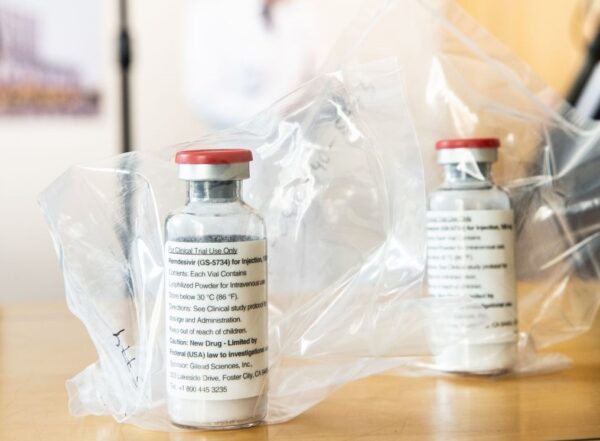
The government of the U.K. is granting that country’s equivalent to an emergency use authorization to remdesivir, the antiviral drug that Gilead Sciences and the National Institutes of Health developed for Covid-19.
The U.K.’s Department of Health and Social Care said Tuesday that the drug would be made available under an Early Access to Medicines Scheme, or EAMS, based on an agreement between Foster City, California-based Gilead, the National Health Service, the Medicines and Healthcare products Regulatory Agency and the administrations of the U.K.’s constituent countries. Patients who are hospitalized with severe disease will be eligible to receive the drug. The arrangement is similar to the EUA that the U.S. Food and Drug Administration granted earlier this month, and a similar one in Japan.
“We are committed to ensuring that patients can have fast access to promising new treatments for Covid-19,” MHRA Chief Executive June Raine said in a statement. “We will continue to work closely with the Department of Health and Social Care and other healthcare partners on protecting public health in the U.K. by prioritizing our essential work on clinical trials, access to medicines and the development of vaccines.”
The EUA was granted following the announcement of data from the National Institute of Allergy and Infectious Disease’s Phase III study, which showed a statistically significant improvement in the time for patients to recover from disease. Peer-reviewed data, which encompassed most of the 1,059 patients, were published in The New England Journal of Medicine last Friday. The data showed that among patients who received remdesivir, the median time to recovery was 11 days, compared with 15 days among those in the placebo arm. While there was a numerical difference in rate of deaths between the two arms – 7.1% among those receiving the drug, versus 11.9% among those in the placebo arm – that figure did not reach statistical significance.
The study authors determined that the drug was most beneficial in patients requiring oxygen, but that was most likely due to such patients constituting a majority of those on study.
Photo: Ulrich Perrey, Pool/AFP, Getty Images










